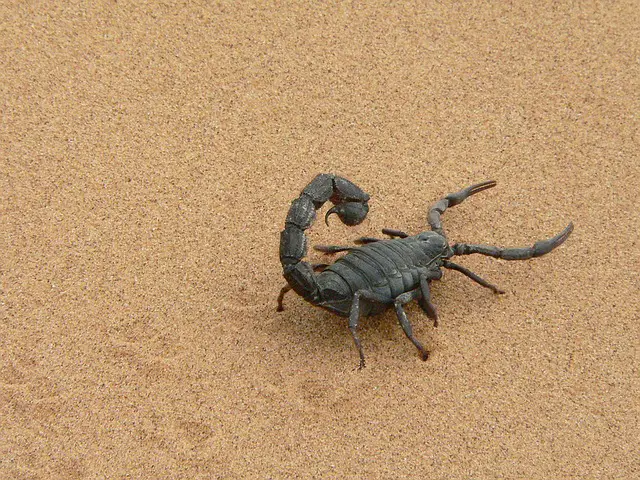Do you have nightmares of scorpions stinging you in your sleep? Believe it or not, this is a common fear. But the good news is that scorpions generally won’t sting you unless they feel threatened. In this blog post, we will take a closer look at the behavior of scorpions and discuss whether or not they are likely to sting you in your sleep. We will also provide some tips for avoiding scorpion stings. Stay safe out there.
Introduction
Scorpions are nocturnal predators that hunt at night for their food. They are attracted to heat and movement, which is why they are often found near human habitation.
While scorpions will typically only sting humans if they feel threatened, there have been cases of people being stung in their sleep.
In most cases, the victim wakes up feeling sharp pain and then experiences swelling and redness at the site of the sting.
In some rare cases, the venom can cause more serious health problems, such as paralysis or organ damage.
However, death from a scorpion sting is very rare. If you think you’ve been stung by a scorpion, it’s important to seek medical attention immediately.
How to prevent Scorpion stings when I am sleeping
If you live in an area where scorpions are common, it is important to take precautions to avoid being stung while you are sleeping.
The best way to do this is to create a barrier between yourself and the scorpion.
Seal any cracks or gaps in your walls and doors, and make sure that your windows are properly screened.
You should also keep your bed away from the wall so that scorpions cannot climb up onto it.
If you are camping or sleeping outdoors, consider using a mosquito net to protect yourself from scorpions and other pests.
By taking these simple precautions, you can help to ensure that you have a safe and comfortable night’s sleep.
How to prevent scorpion stings from happening in general
There are some simple steps that you can take to avoid being stung by a scorpion.
- First, be aware of their habitat. Scorpions are most often found in dark, moist places such as under rocks or in crevices. If you are spending time in an area where scorpions may be present, avoid putting your hands in places where you can’t see them.
- Secondly, wear proper clothing. Scorpions are more likely to sting when they feel threatened, so it’s important to wear long pants and long sleeves when working in areas where they may be present.
- Finally, if you do happen to get stung by a scorpion, seek medical attention immediately. The sooner you receive treatment, the less likely you are to experience serious health complications.
By following these simple tips, you can help to ensure that you never have to experience the pain of a scorpion sting.
How do scorpions sting people and what are the symptoms
Scorpions use their tails to inject venom into their prey, and they can also sting humans if they feel threatened.
The venom consists of a mixture of neurotoxins and other compounds that can cause intense pain, swelling, and inflammation at the site of the sting.
In some cases, the venom can also cause nausea, vomiting, and difficulty breathing.
If you are stung by a scorpion, it is important to seek medical attention immediately.
The symptoms can be very serious, and in some cases, they can even be life-threatening.
Conclusion
It is unlikely that a scorpion will sting you while you are sleeping. Scorpions are opportunistic predators and will usually only sting humans if they feel threatened or if they are trying to catch prey. However, there have been a few reports of scorpions crawling into beds and stinging people while they were sleeping.
If you are worried about being stung by a scorpion, there are a few things you can do to reduce the risk. First, make sure to shake out your bedding before going to bed. This will help to dislodge any scorpions that may be hiding in your sheets. Second, keep your bedroom clean and free of clutter.
This will make it harder for scorpions to find a hiding place. Finally, if you live in an area where scorpions are common, consider using a mosquito net over your bed to create an additional barrier between you and the pests.





